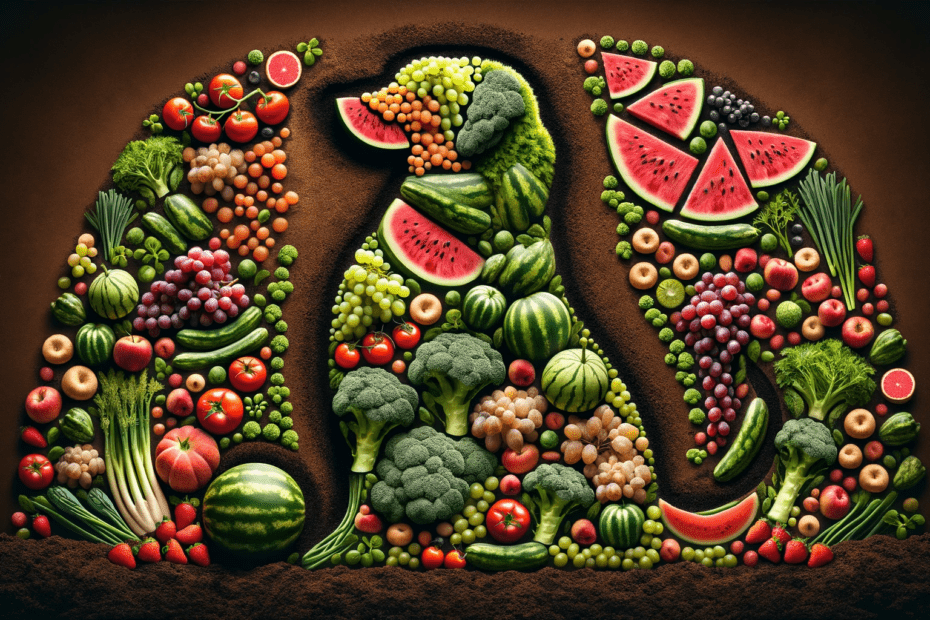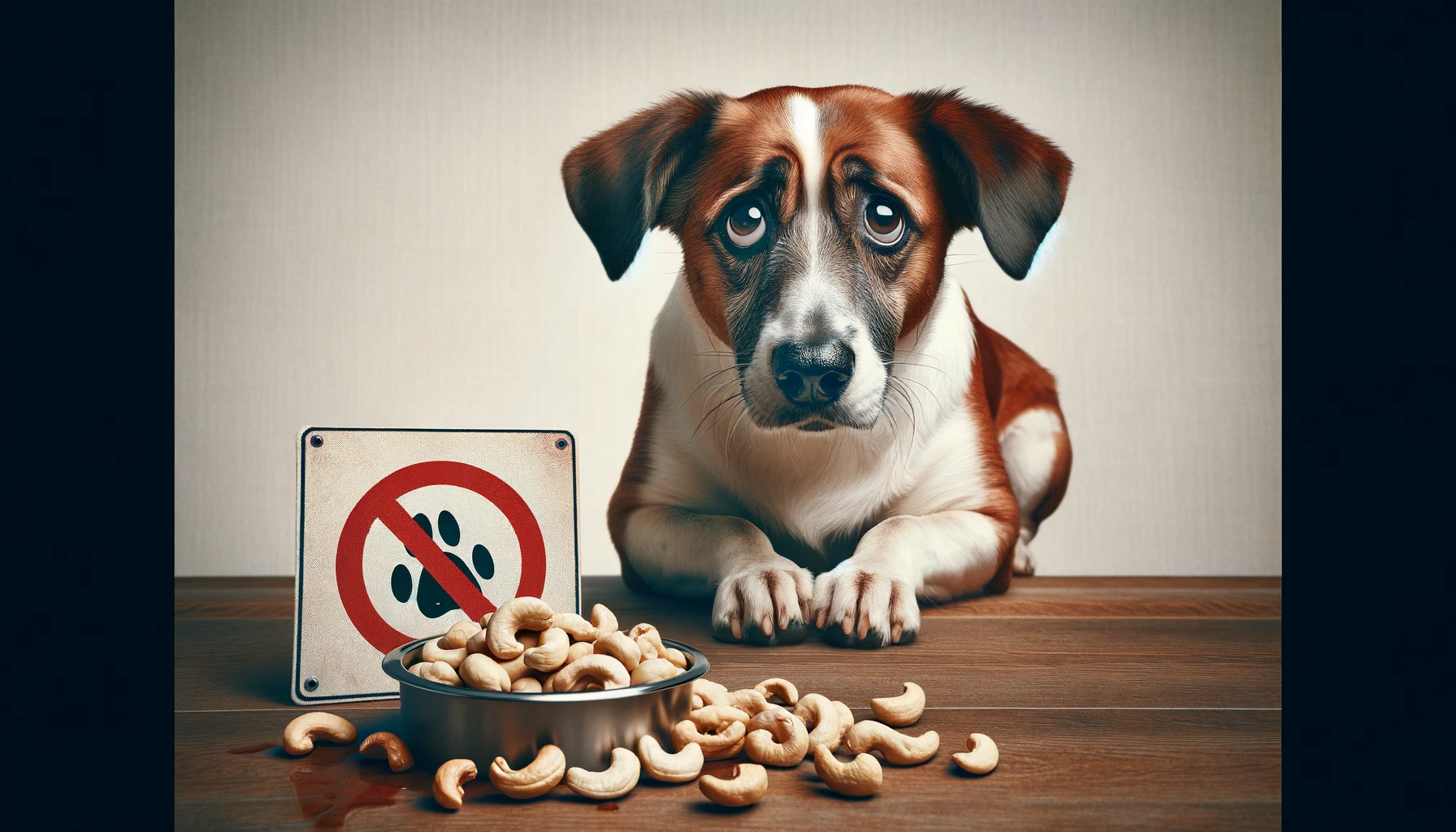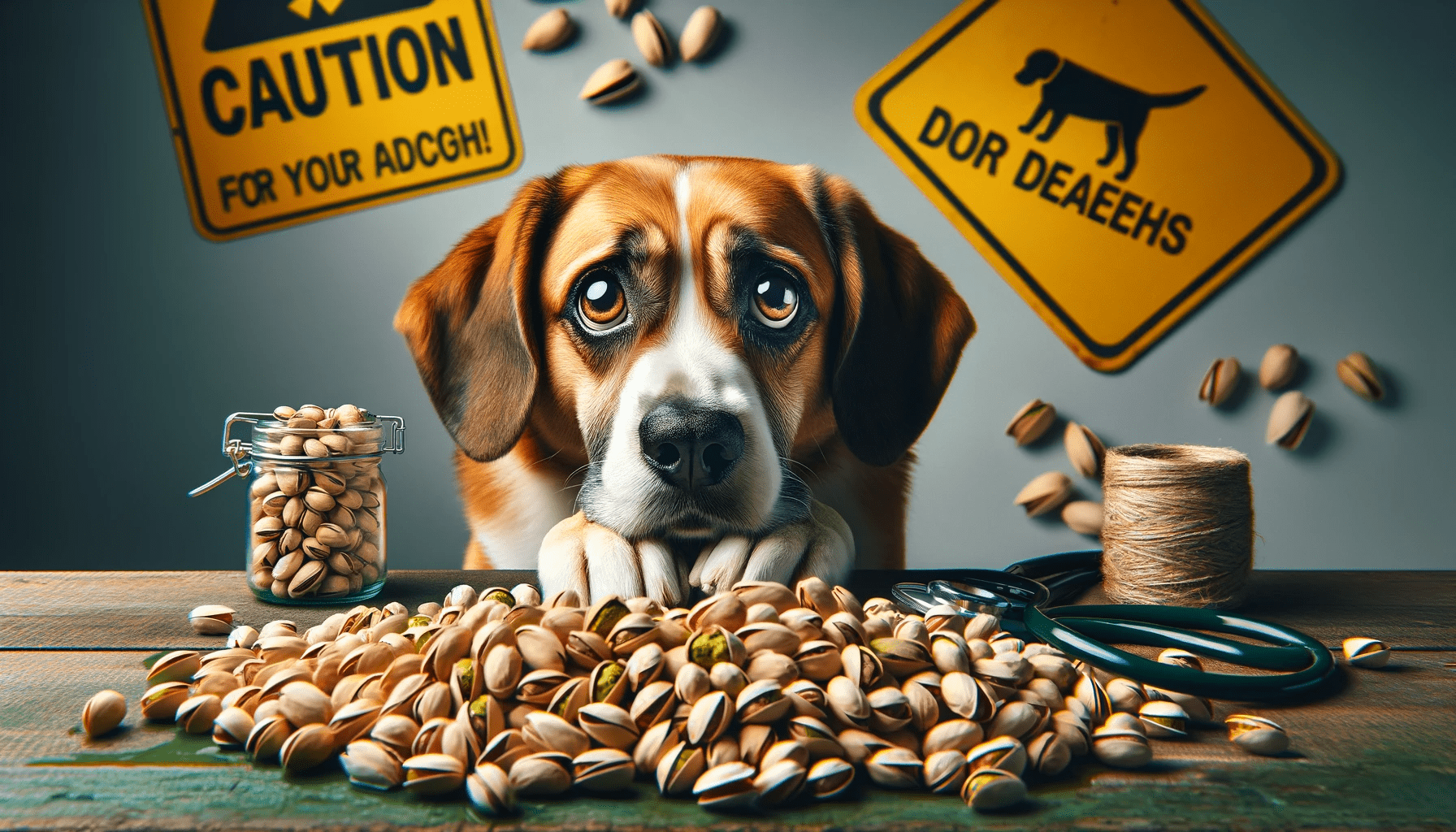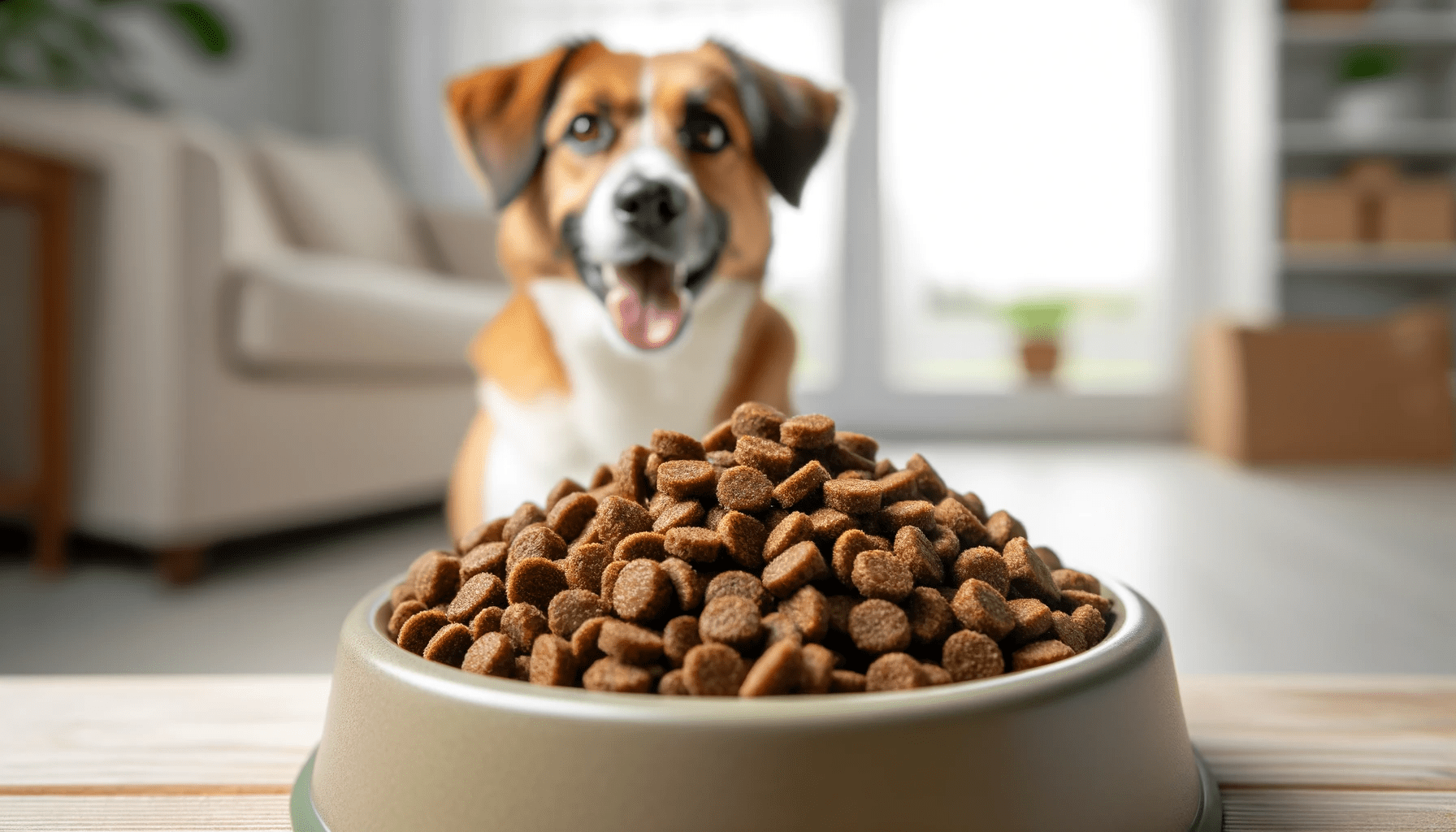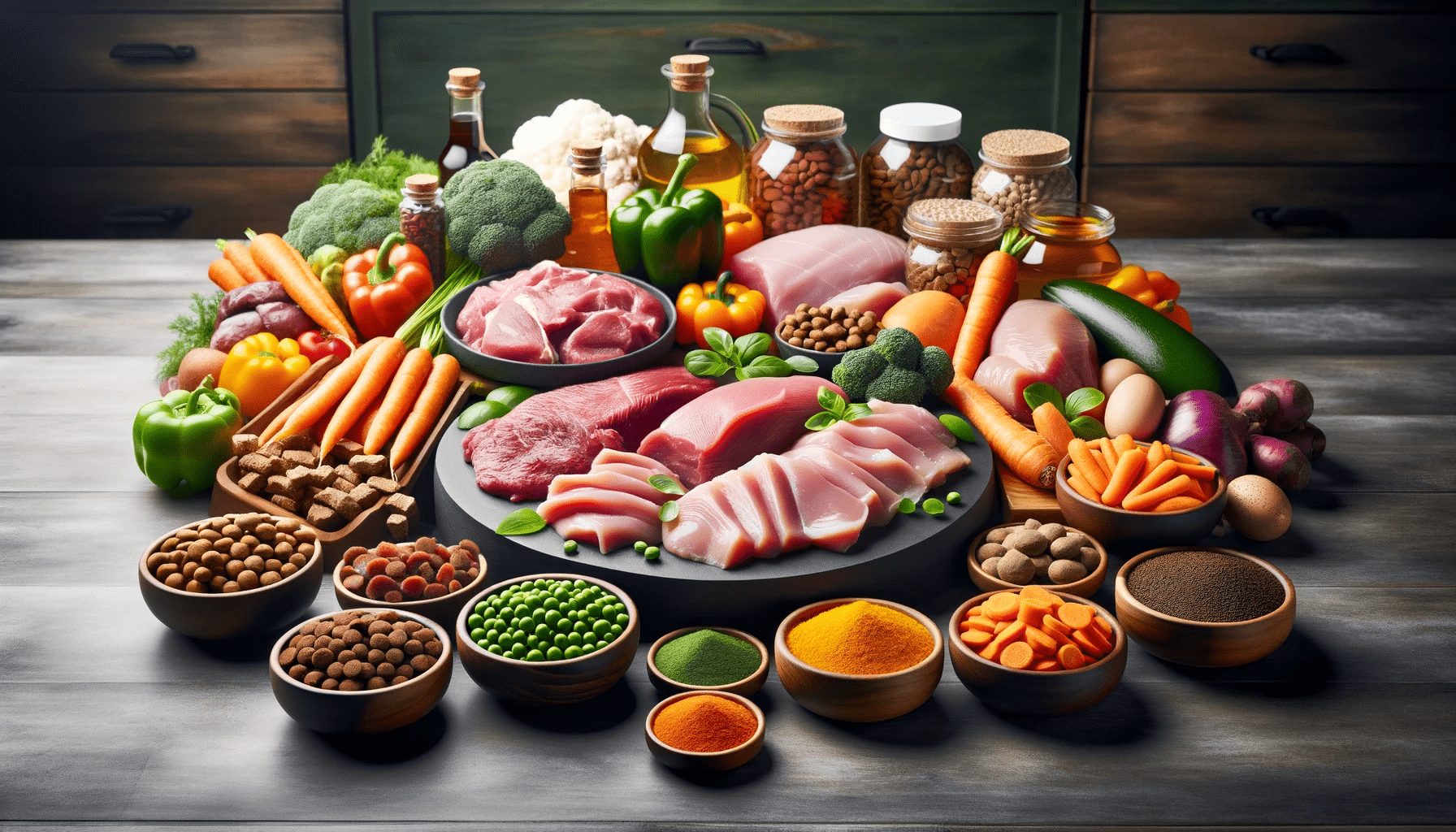Are you looking for ways to improve your dog's nutrition naturally? Look no further! This article provides you with evidence-based tips to enhance your furry friend's diet.
From choosing high-quality dog food to incorporating fresh fruits and vegetables, you'll discover practical strategies to meet their nutritional needs.
With the help of healthy protein sources and essential omega-3 fatty acids, you can ensure your dog stays healthy and happy. Say goodbye to harmful additives and preservatives by implementing a balanced meal plan.
Consult with a veterinarian for expert guidance along the way.
Key Takeaways
- Choose dog food with real meat as the first ingredient and avoid fillers like corn, wheat, or soy.
- Incorporate fresh fruits and vegetables into your dog's meals for essential vitamins, minerals, and antioxidants.
- Look for nutrient-rich protein sources like fish, eggs, lentils, and beans to support overall health.
- Include omega-3 fatty acids from sources like fish oil, salmon, sardines, and flaxseed to benefit skin, coat, joint health, and cognitive function.
Choosing High-Quality Dog Food
When choosing high-quality dog food, consider the ingredients used in the product. Reading labels is crucial to understanding what goes into your furry friend's meals. Look for dog food that lists real meat as the first ingredient. Dogs are carnivores, and protein should be the foundation of their diet. Avoid dog foods that have fillers, such as corn, wheat, or soy, as they offer little nutritional value and may cause allergies or digestive issues. Instead, opt for dog food that contains wholesome grains like brown rice or quinoa, which provide energy and essential nutrients.
Additionally, pay attention to the source of fats in the dog food. Look for healthy fats like chicken fat or fish oil, as they promote a shiny coat and support brain health. Avoid dog foods with artificial preservatives, flavors, or colors, as they can be harmful to your dog's overall well-being. Opt for dog food that includes natural preservatives like tocopherols (Vitamin E).
Lastly, remember that not all dog food is created equal. Just because a product claims to be 'premium' or 'natural' doesn't necessarily mean it's the best choice for your dog. Take the time to research different brands, read reviews, and consult with your veterinarian to find the most suitable dog food for your furry companion. Your dog's health and happiness depend on it.
Incorporating Fresh Fruits and Vegetables
Incorporating fresh fruits and vegetables into your dog's diet can provide a range of nutritional benefits.
Fruits and vegetables are packed with essential vitamins, minerals, and antioxidants that can support your dog's overall health and wellbeing.
Additionally, incorporating produce into your dog's meals is easy and can be done through simple recipe ideas that ensure your furry friend gets the nutrients they need.
Nutritional Benefits of Produce
To enhance your dog's nutrition, incorporating a variety of fresh fruits and vegetables can provide numerous nutritional benefits. Just like humans, dogs can benefit from the vitamins, minerals, and antioxidants found in produce.
Fruits such as apples, blueberries, and bananas are packed with vitamins A, C, and E, which support a strong immune system and promote healthy skin and coat.
Vegetables like carrots, sweet potatoes, and spinach are excellent sources of fiber, which aids in digestion and promotes a healthy weight.
Additionally, incorporating produce into your dog's diet can help reduce the risk of chronic diseases such as cancer and heart disease.
Easy Recipe Ideas
You can easily incorporate fresh fruits and vegetables into your dog's diet with these simple recipe ideas. Not only do these recipes provide a nutritional boost, but they also add variety and flavor to your dog's meals. Here are some easy recipe variations to try:
- Fruit Salad Surprise: Mix together chopped apples, blueberries, and watermelon for a refreshing treat. Remember to remove any seeds or pits that could be harmful to your dog.
- Veggie Medley Mash: Steam a combination of carrots, peas, and sweet potatoes until soft. Mash them together and serve as a side dish or mix it with your dog's regular food.
- Frozen Banana Pops: Peel a banana and cut it into bite-sized pieces. Freeze them on a baking sheet and serve as a cool and tasty snack on hot days.
- Spinach and Chicken Stir-Fry: Sauté spinach and cooked chicken in a small amount of olive oil. Serve it over your dog's regular food for a nutritious and flavorful meal.
Remember to practice portion control and adjust the recipes based on your dog's size and dietary needs.
Adding Healthy Protein Sources
Choose nutrient-rich protein sources to enhance your dog's diet. Adding healthy protein sources is essential for maintaining your dog's overall health and well-being. While meat is a common protein source for dogs, there are also healthy meat alternatives and vegetarian options available.
One healthy meat alternative is fish. Fish, such as salmon or sardines, are rich in omega-3 fatty acids, which can promote a healthy coat and reduce inflammation. You can feed your dog cooked fish or include fish oil supplements in their diet.
Another option is eggs. Eggs are a great source of high-quality protein and contain essential amino acids that are beneficial for dogs. They're also rich in vitamins and minerals, including vitamin B12 and selenium. Serve eggs cooked without any seasoning.
If you prefer a vegetarian diet for your dog, there are options available. Plant-based protein sources like lentils and beans can provide the necessary nutrients. However, it's important to consult with a veterinarian or canine nutritionist to ensure your dog receives all the essential nutrients they need.
When adding protein sources to your dog's diet, always remember to introduce new foods gradually and observe any potential allergic reactions. Additionally, remember to adjust the portion sizes accordingly to maintain a balanced diet for your furry friend.
Including Essential Omega-3 Fatty Acids
One key way to improve your dog's nutrition is by incorporating a variety of essential omega-3 fatty acids into their diet. Omega-3 fatty acids are beneficial for dogs as they help support overall health and can have a positive impact on their skin, coat, joint health, and cognitive function.
Here are some important points to consider when including omega-3 fatty acids in your dog's diet:
- Omega 3 sources: The best sources of omega-3 fatty acids for dogs include fish oil, salmon, sardines, and flaxseed. These sources are rich in two important omega-3 fatty acids called EPA and DHA, which have numerous health benefits.
- Recommended dosage: The recommended dosage of omega-3 fatty acids for dogs varies depending on their size and health condition. As a general guideline, dogs should receive a daily dose of around 20-55 mg of EPA and 9-25 mg of DHA per pound of body weight. However, it's always best to consult with your veterinarian to determine the appropriate dosage for your specific dog.
- Benefits for skin and coat: Omega-3 fatty acids can help reduce inflammation and improve the condition of your dog's skin and coat. They can also alleviate dryness, itching, and promote a healthy, shiny coat.
- Joint health and cognitive function: Omega-3 fatty acids have been shown to have anti-inflammatory properties, which can help alleviate joint pain and improve mobility in dogs with arthritis. Additionally, they've been linked to improved cognitive function and brain health in aging dogs.
Avoiding Harmful Additives and Preservatives
Continuing to prioritize your dog's nutrition, it's important to be mindful of harmful additives and preservatives in their diet. Many commercial dog foods contain harmful food additives that can have negative effects on your dog's health. These additives include artificial colors, flavors, and preservatives such as BHA, BHT, and ethoxyquin. These chemicals have been linked to various health issues, including allergies, digestive problems, and even cancer.
To ensure your dog's safety, it's recommended to opt for preservative alternatives. Natural preservatives such as vitamin E (tocopherols) and vitamin C (ascorbic acid) can be used instead. These natural preservatives not only help to extend the shelf life of dog food but also provide additional health benefits. Vitamin E, for example, is an antioxidant that helps protect cells from damage caused by free radicals.
Furthermore, reading the ingredient label is crucial when choosing dog food. Look for brands that use minimal or no additives and preservatives. Additionally, consider preparing homemade meals for your dog using fresh, whole ingredients. This way, you have complete control over what goes into their food and can avoid harmful additives altogether.
Implementing a Balanced Meal Plan
To ensure optimal nutrition for your dog, it's important to create a well-balanced meal plan. Meal preparation and portion control play a crucial role in maintaining your dog's health and overall well-being. Here are some tips to help you implement a balanced meal plan for your furry friend:
- Consult with your veterinarian: Before making any changes to your dog's diet, it's important to consult with your veterinarian. They can provide valuable insights and recommendations based on your dog's specific needs and health conditions.
- Choose high-quality ingredients: Opt for fresh, natural ingredients that are rich in essential nutrients. Include a variety of protein sources such as lean meats, fish, and eggs, along with carbohydrates like whole grains and vegetables.
- Follow the 80/20 rule: Ensure that your dog's meal consists of 80% protein and 20% carbohydrates and vegetables. This balance provides the necessary nutrients while maintaining a healthy weight.
- Control portion sizes: Overfeeding can lead to obesity and other health issues. Use measuring cups to accurately portion your dog's meals according to their size, age, and activity level.
Consulting With a Veterinarian for Guidance
When it comes to improving your dog's nutrition, consulting with a veterinarian is essential.
They possess expert knowledge on canine nutrition and can provide personalized guidance based on your dog's specific needs.
Expert Advice on Nutrition
How can you obtain expert advice on improving your dog's nutrition?
Consulting with a veterinarian is the best way to ensure that you're making informed decisions about your dog's diet. Veterinarians have the knowledge and expertise to provide you with expert opinions based on scientific research.
Here are four ways to make the most out of your consultation with a veterinarian:
- Prepare a list of questions: Before your appointment, write down any concerns or doubts you may have about your dog's nutrition. This will help you stay focused and ensure that you get all the information you need.
- Bring your dog's food labels: Providing your veterinarian with the specific brand and type of food your dog consumes will help them assess its nutritional value and make appropriate recommendations.
- Discuss your dog's lifestyle: Share information about your dog's age, breed, activity level, and any specific health conditions. This will help the veterinarian tailor their advice to your dog's individual needs.
- Take notes: During your consultation, take notes on the veterinarian's recommendations and any other important information. This will ensure that you can refer back to it later and follow the suggestions accurately.
Personalized Guidance for Dogs
Consulting with a veterinarian for personalized guidance is crucial in ensuring that you provide your dog with the best nutrition possible. A veterinarian can assess your dog's specific needs and create personalized meal plans tailored to their individual requirements. This ensures that they receive the right balance of nutrients to support their overall health and well-being.
In addition to personalized meal plans, a veterinarian can also recommend dietary supplements if necessary. These supplements can help address any nutritional deficiencies or specific health concerns that your dog may have.
Ensuring Optimal Dietary Choices
To ensure your dog's optimal dietary choices, consult with a veterinarian for personalized guidance on their nutrition. Here are four important reasons why consulting with a vet is crucial for ensuring balanced nutrition and the importance of portion control:
- Expert Knowledge: Veterinarians have extensive knowledge of canine nutrition and can provide valuable insights into your dog's specific dietary needs. They can recommend the right balance of proteins, fats, and carbohydrates, taking into account your dog's age, breed, size, and any underlying health conditions.
- Tailored Meal Plans: A veterinarian can create a customized meal plan for your dog, ensuring they receive all the necessary nutrients in the right proportions. This helps prevent nutritional deficiencies or excesses, promoting overall health and well-being.
- Weight Management: Portion control is essential for maintaining a healthy weight in dogs. Veterinarians can determine the appropriate portion sizes based on your dog's activity level, metabolism, and body condition. This helps prevent obesity, which can lead to various health problems.
- Monitoring and Adjustments: Regular consultations with a veterinarian allow for ongoing monitoring of your dog's nutritional needs. They can make adjustments to the diet as needed, considering factors such as age-related changes or specific health conditions.
Frequently Asked Questions
Can I Give My Dog Raw Meat as a Source of Healthy Protein?
Yes, you can give your dog raw meat as a source of healthy protein. However, it's important to consult a veterinarian for a balanced homemade meal plan to ensure your dog's nutritional needs are met.
Are There Any Specific Fruits or Vegetables That Are Harmful to Dogs?
Yes, there are certain fruits and vegetables that can be harmful to dogs. Grapes, raisins, onions, and garlic are just a few examples. It's important to research safe options and consult with a veterinarian.
How Much Omega-3 Fatty Acids Should I Include in My Dog's Diet?
To improve your dog's nutrition, include a proper dosage of omega-3 fatty acids in their diet. These healthy fats provide numerous benefits for canine health, such as reducing inflammation and supporting brain function.
What Are Some Common Harmful Additives and Preservatives Found in Dog Food?
Harmful additives and preservatives are commonly found in dog food. Opt for alternatives to commercial dog food to avoid these. Look for natural options that prioritize your dog's health and well-being.
Can I Create a Balanced Homemade Meal Plan for My Dog Without Consulting a Veterinarian?
You should always consult a veterinarian before creating a homemade meal plan for your dog. They can assess your dog's specific needs and ensure a balanced diet. The potential risks and benefits should be carefully considered.
Conclusion
In conclusion, by following these natural tips for improving dog nutrition, you can ensure that your furry friend receives a well-balanced and healthy diet.
Choosing high-quality dog food, incorporating fresh fruits and vegetables, adding healthy protein sources, and including essential omega-3 fatty acids are all important steps in providing optimal nutrition for your dog.
Additionally, avoiding harmful additives and preservatives and implementing a balanced meal plan will further contribute to your dog's overall well-being.
Remember to consult with a veterinarian for personalized guidance and recommendations.
